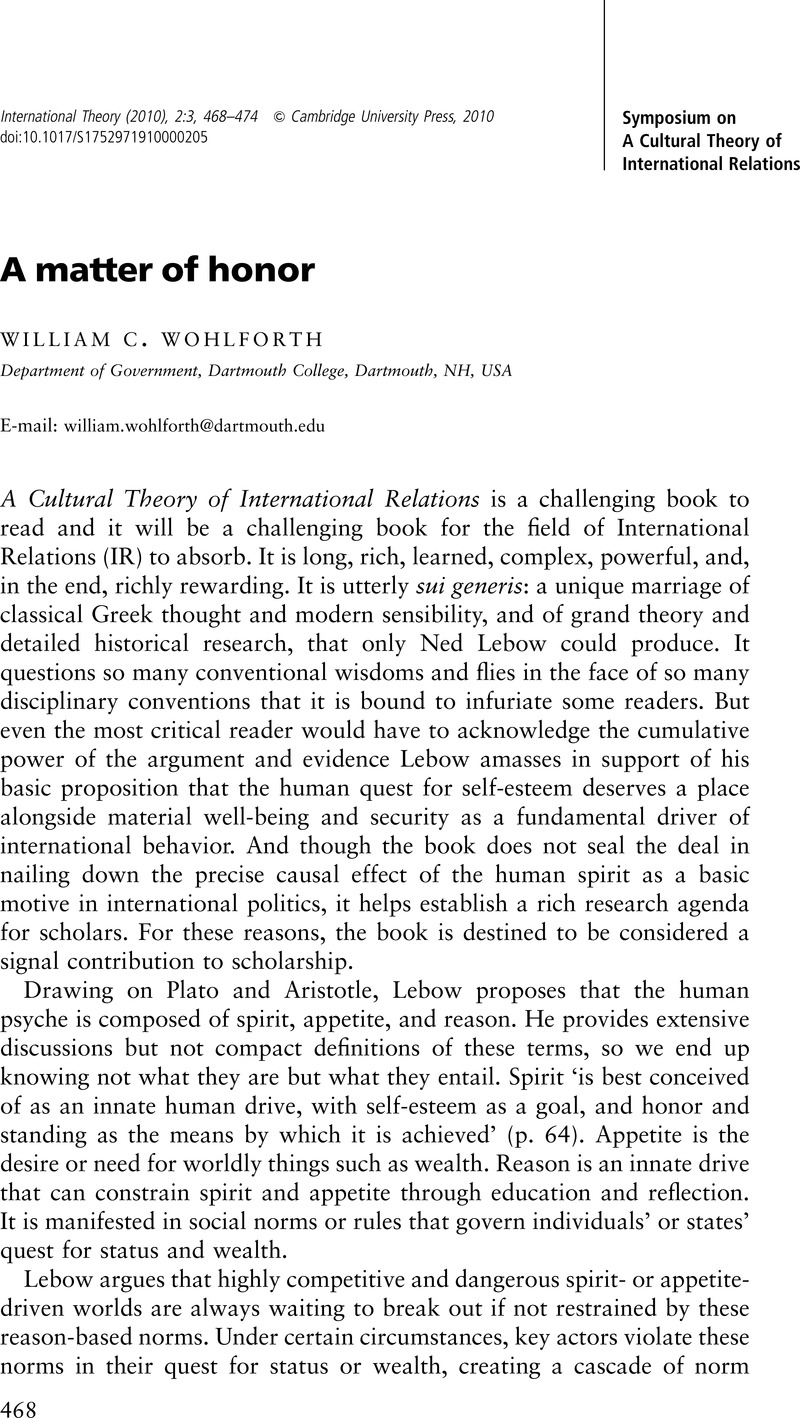Crossref Citations
This article has been cited by the following publications. This list is generated based on data provided by Crossref.
Browning, Christopher S.
2015.
Nation Branding, National Self-Esteem, and the Constitution of Subjectivity in Late Modernity.
Foreign Policy Analysis,
Vol. 11,
Issue. 2,
p.
195.
Müller, Harald
2017.
Richard Ned Lebow: A Pioneer in International Relations Theory, History, Political Philosophy and Psychology.
Vol. 2,
Issue. ,
p.
55.
Kornprobst, Markus
2017.
Richard Ned Lebow: A Pioneer in International Relations Theory, History, Political Philosophy and Psychology.
Vol. 2,
Issue. ,
p.
45.



